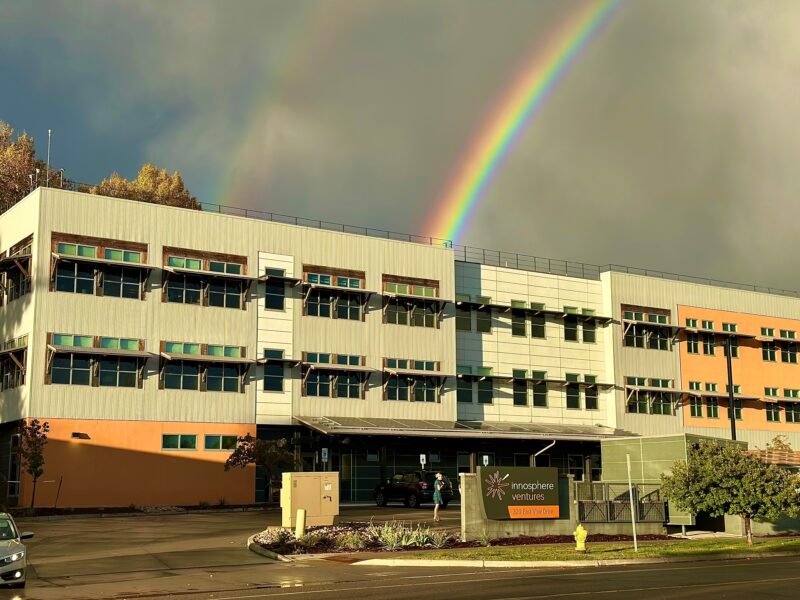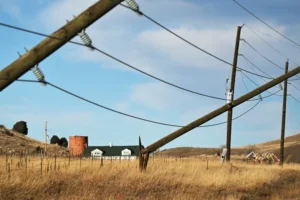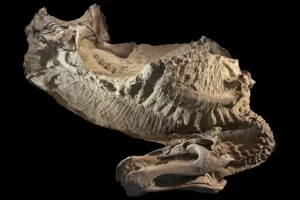Wyoming is Poised to Receive Up to $235M in Federal Funding to Spark Tech Improvements
Chips and Science Act money will boost nuclear energy development and possibly climate-resilient technology
- Published In: Other News & Features
- Last Updated: Oct 24, 2023

The Colorado-Wyoming Regional Innovation Engine’s work will be spearheaded and coordinated by Innosphere Ventures, a nonprofit business incubator headquartered in Fort Collins, Colorado. (Courtesy photo from Innosphere Ventures)
By K.L. McQuaid
Special to the Wyoming Truth
Parts of Wyoming and Idaho were designated a technology hub by the U.S. government on Monday as part of a push to spur innovation, one of a pair of federal programs the Cowboy State hopes to leverage to promote sustainability and economic diversity.
The Commerce Department yesterday announced that Wyoming, in a partnership with Idaho, would develop “small modular nuclear reactors and microreactors” in the Laramie and Rock Springs areas, along with the Wind River Indian Reservation.
The Intermountain-West Nuclear Energy Corridor Tech Hub aims to position the two states as a “global leader” in small modular reactors to “contribute to a cleaner energy future.”
As part of that overall goal, the tech hub will create incubators for nuclear startup businesses and programs to develop and enhance the nuclear industry’s workforce.
The Wyoming and Idaho partnership was one of 31 tech hubs awarded funding from over 370 applicants nationwide. Each is eligible for up to $75 million in federal money for its efforts.
“The U.S. will lead the world again in innovation,” President Joe Biden said in a briefing Monday afternoon. “The work these tech hubs will do will be transformational. We’re going to make sure America’s future is made in America.”
The tech hub designation comes as Wyoming and Colorado have teamed up in the hope of winning $160 million over a decade from the National Science Foundation (NSF). Officials said that grant, the recipients of which are expected to be named by the end of the year, would create jobs and spur economic development throughout the two-state region.
The CO-WY Engine was named as one of 16 finalists by NSF earlier this month. The collaboration is the only finalist whose work addresses climate change and solutions to combat global warming.
As many as five of the 16 finalists are expected to receive NSF funding.
Both the tech hub award and the NSF grant stem from the federal Chips and Science Act, which Biden signed over a year ago to boost American infrastructure and global competitiveness.
If the Colorado-Wyoming Regional Innovation Engine (CO-WY Engine) partnership is selected to receive funding in the NSF competition, it would use the money to develop new technology and predictive modeling in the field of climate resiliency that could benefit the nation.
“Wyoming understands the urgency of addressing climate challenges,” Gov. Mark Gordon, who has made climate sustainability a hallmark of his administration, said in a statement. “The pathway to a prosperous global future will be paved with adequate, affordable energy and a rigorous commitment to a healthy environment.”
It’s expected the Colorado-Wyoming partnership would receive roughly $15 million in its first two years with the balance spread over the following eight years, provided the collaboration meets certain benchmarks in development.
Developing new technologies
The CO-WY Engine is being spearheaded by Innosphere Ventures, a Fort Collins, Colorado-based nonprofit, high-tech business incubator and funder formed in 1998.
Most recently, its client companies have raised $220 million in capital, generated $63 million in revenue and created over 1,400 jobs in Colorado, according to Innosphere’s website.
In time, CO-WY Engine participants said they hope the partnership will become a national leader in developing climate-resilient technology.
To that end, the CO-WY Engine is proposing creating a venture capital fund that would invest in startup firms throughout the two states that would “monitor, mitigate and adapt to climate impacts” and commercialize technology that arises from the partnership.
“The idea of commercializing some of the scientific work that might come out of the engine is particularly exciting,” Wyoming Business Council CEO Josh Dorrell told the Wyoming Truth.
Dorrell added the new businesses and technologies would be involved in water resource management and agricultural technology, as well as potentially be applied to wildfires, drought and flooding. The two states also are committed to exploring development of the direct capture of carbon dioxide from the air.
In addition to the Wyoming Business Council, Wyoming Venture Capital, the Colorado Office of Economic Development and International Trade, the Colorado Venture Capital Authority, the Wyoming Innovation Partnership and the University of Wyoming all participated in the engine’s formation over a year ago.
“There’s been a concerted effort and tremendous coordination involving many entities over many months,” Dorrell said. “For rural communities, in particular, the technology that’s developed could ensure the safety, security and long-term viability of the state. What we learn and develop here we also believe could be extended to the entire United States.”
Among its goals, NSF hopes the engines will spark economic growth in areas that have “not fully participated in the technology boom of the past few decades.” The agency, which was created in May 1950, also hopes the engines will ensure the U.S. “remains globally competitive in key technology areas,” according to its website.
Parag Chitnis, vice president of research and economic development at the University of Wyoming and a key driver of establishing the partnership since arriving in Laramie in March 2022, noted the CO-WY Engine is only one of four such collaborations west of the Mississippi River.
The other three proposals are from universities in Texas and Arizona and the New Mexico Trade Alliance.
“Because of our location and the proposals we’ve outlined, we’re very hopeful that we have a good chance to get one of these grants,” Chitnis said. “We’re committed to making sure Wyoming receives the benefits from this, and we believe this is what’s needed to build trust among communities and businesses alike.”
NSF, which narrowed the list of potential engine funding recipients to 34 in June, interviewed officials from Colorado and Wyoming involved in the collaboration earlier this month. The agency intends to meet with each finalist team to “assess risks, resources and a given team’s ability to adapt to changing circumstances,” according to its website, before making selections.
In addition to the CO-WY Engine, other finalists include the Kentucky Science & Technology Corp., for its work on advanced manufacturing and building construction; the University of Minnesota Twin Cities, for its work on sustainable plastics; the Wake Forest University School of Medicine, with a proposal on regenerative medicine clinical manufacturing; and Louisiana State University, for its work on the innovation and transition of energy.













